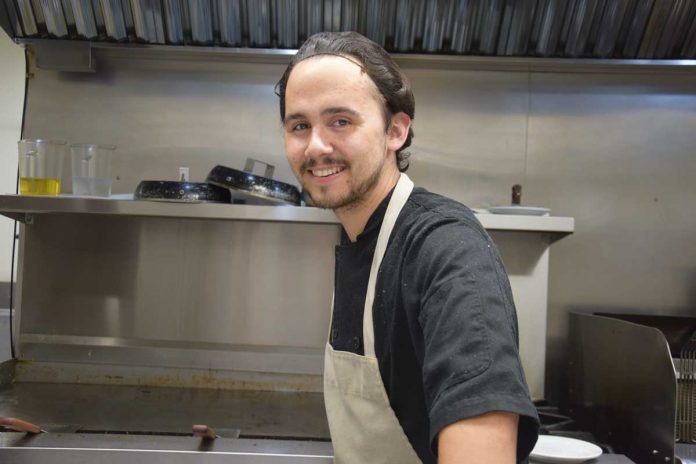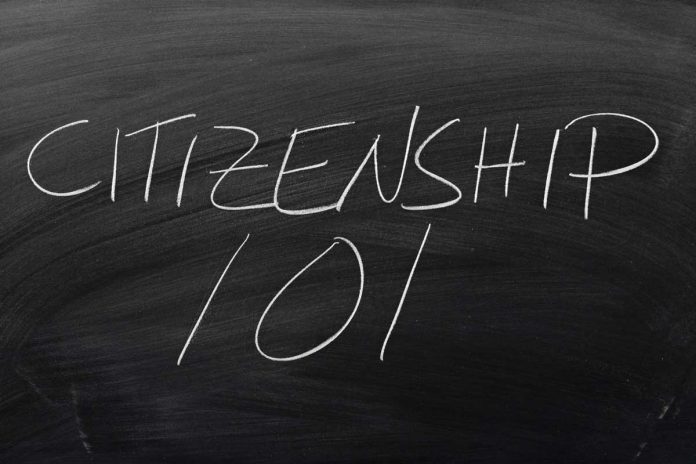MANITOULIN – A recent poll found that Canadians under the age of 54 are consuming more alcohol at home due to the COVID-19 pandemic. The April study, commissioned by the Canadian Centre on Substance Use and Addiction (CCSA) and conducted by Nanos Research, found that 25 percent of Canadians aged 35 to 54 and 21 percent of Canadians aged 18 to 34 say they have been drinking more alcohol since the beginning of self-isolation and social distancing.
The main reasons for the increase were reported as lack of a regular schedule (51 percent), boredom (49 percent) and stress (44 percent). Overall, 94 percent of Canadians reported they are staying at home more due to COVID-19. The margin of error for this survey is ±3.1 percentage points, 19 times out of 20.
The Expositor spoke with CCSA’s knowledge broker Dr. Bryce Barker, whose expertise includes alcohol and low-risk drinking guidelines and who has been deeply involved with the Nanos poll results. Dr. Barker said there is not yet enough data to determine whether this will continue to be a trend post-pandemic. “We don’t have the data yet to say what a trend would look like, especially if we open (the economy) in phases,” he said, noting that Statistics Canada (SC) recently completed a similar study but with a larger Canadian data sample that showed “slightly lower numbers but the same trend or pattern with more people in the ages 15 to 54 years drinking. Another interesting finding in the SC study was that unemployed and socially isolated people who reported lower perceived mental health were more likely to consume alcohol, cannabis or other substances. So, if the conditions that contribute to lower perceived mental health persist those people might continue to consume more alcohol.”
The bigger concern, noted Dr. Barker, was not if people consumed more but if people shifted to drinking alcohol on a daily basis that had not done so prior to the COVID-19 outbreak. That’s where there’s a real concern for alcohol use disorder,” he said. “This situation is unprecedented and it takes a lot of time to get the data and see what happens after a situation like this—we’ve never had a situation like this.”
He recommends that people think about positive ways to cope with the stress and loneliness of the situation. “I would also encourage anyone who does drink to look at Canada’s low risk alcohol drinking guidelines,” he continued. “There are a lot of very practical things people can do. They can set low risk limits on how much they drink. That’s two drinks for women and three drinks for men on any one occasion so you can set that limit and stick with it. You can set a limit on how many days of the week you will drink and stick with that. You can plan days off every week. You can pace your drinks to less than one per hour. You can eat before and while drinking and you can alternate your alcoholic drinks with non-alcoholic drinks on any occasion. So, anytime I sit down to have a drink, I’ll have an alcoholic drink and then I can have a non-alcoholic drink and that can help with pacing.” (For a copy of Canada’s low-risk alcohol drinking guidelines or information on alcohol and COVID-19, visit CCSA.ca.)
Alcohol can be used as a way to cope, Dr. Barker said, but it’s not always a good way to deal with a stressful situation. “Sometimes things we’re coping with can be made worse by alcohol so if I feel stress, I might feel more stress after I’ve spent an evening drinking. It might seem like a good coping strategy but there are other healthier ways to cope with stress and loneliness.”
Those with addictions issues are particularly vulnerable and may experience increased anxiety or a worsening of existing symptoms during the pandemic and recovery period. Many providers have modified how they deliver services during this pandemic to better protect their clients and staff from COVID-19. As a result, it may be more challenging at this time to connect in person with existing addictions services providers or peer support groups, but resources and assistance are still available for those in need.
While in-person meetings are closed until further notice, Alcoholics Anonymous (AA) has set up Zoom meetings Monday, Wednesday and Friday for this region. The transition from face-to-face to online meetings was almost seamless due to previous experience in some more remote Northern communities, according to a spokesperson, and individuals are able to maintain their anonymity. To register, visit the regional website at Area84.org. Volunteers continue to man the phone lines at 705-674-6217 from 10 am until 5 pm Monday to Friday. There is also an answering service for after hours.
The phone number for Narcotics Anonymous, which operates on the same 12 step principles, is 1-888-811-3887.
A comprehensive listing of resources for alcohol and drug addiction assessment and treatment can be found at NortheastHealthline.ca under the Sudbury-Manitoulin-Parry Sound tab.






